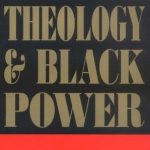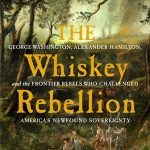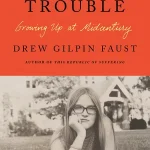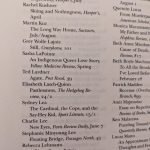We covered Trump’s executive order on American history here. Today at The New York Times, Pulitzer Prize-winning historian David Blight offers his thoughts. A taste: According to the president, “objective facts” have been replaced with a “distorted narrative driven by […]
historical thinking
Why Study History?: A conversation with the guys on the Re-Integrate Podcast
Listen here. Here is the episode description: Both David and Bob are history buffs. But studying history is not as simple as watching a documentary, a biopic, or reading a bestselling narrative history. We need to be aware of how […]
History saves us from ourselves
My piece in yesterday’s Sunday edition of the Pittsburgh Post Gazette. A taste: Today the study of history is used as a cudgel in the culture wars. Activists on both the left and the right cherry-pick from the past to […]
“Evangelicals believe…”
I am teaching my history course on the “Age of Hamilton” this semester. In between the first and second class periods I asked the students to watch Lin Manuel Miranda’s Broadway musical Hamilton. On the second day of class we […]
Albert Mohler is free to advance his Christian nationalism, but he should be more careful when using American history to do it.
Albert Mohler believes that the United States was built, and should continue to be built, on a Christian foundation. Read his entire argument here. The piece stems from his 2024 speech to the National Conservatism Conference. Let’s see how Mohler […]
In the Fall of 2024, history matters
Here is Harvard intellectual historian James Kloppenberg at Commonweal: Before entering graduate school I had read a little book by the Oxford historian E. H. Carr, What Is History? I found his answer persuasive: it is a practice of interpretation. Historians can […]
George W. Bush does not need to “get right with history” because history does not work that way
Washington Post writer Matt Bai wants George W. Bush to “get right” with history by endorsing Kamala Harris. Here is a taste of his piece: I’d love to hear from George W. Bush before Election Day. Alone among the four […]
A visit to Faulkner University
On Friday I was in Montgomery, Alabama where I was honored to be the plenary speaker at Faulkner University’s Institute of Faith and the Academy Conference. Faulkner is affiliated with the Churches of Christ and it is very serious about […]
Ross Douthat: “What if progress isn’t linear, and the World Spirit’s purposes are a bit more complicated than an optimistic form of liberal Protestantism expects?”
Sometimes history does not move in a linear direction towards “progress.” Ross Douthat offers us a short lesson in historical thinking: Here is Douthat’s column on Donald Trump: In different ways in my own lifetime, American conservatism and liberalism placed […]
Based on this interview, Peter Brown would probably have a snowball’s chance in hell of getting elected president of the American Historical Association today.
Here is The New York Review of Books interview with scholar Peter Brown: Nawal Arjini: What are some of the difficulties and pleasures in researching the less documented aspects of the everyday people of the past? Peter Brown: I am fascinated by […]
Talking evangelicalism and race with Edward Carson
It’s not often I get to talk with a Black ex-evangelical who is a history teacher, DEI specialist, and member of the Communist Party USA. I thoroughly enjoyed this conversation with Eddie Carson on WJOP radio (Newburyport, Massachusetts). We talk […]
The “Appeal to Heaven” flag was a revolutionary-era symbol. The “Appeal to Heaven” flag is a Christian Nationalist symbol
Not familiar with the Samuel Alito “Appeal to Heaven” flag controversy? Get up to speed here. I am seeing a lot of tweets like this: What Reed and Pence fail to recognize is that symbols like the Pine Tree Flag […]
“You can’t love your country only when you win”
I am on the road this month so my reaction to news stories has been a bit slower than usual. Today I finally got caught up on the responses to Joe Biden’s State of the Union address: Watch the entire […]
Why James Cone didn’t “cancel” himself
David Fitch, the B.R. Linder Chair of Evangelical Theology at North Park University, reflects on Black liberation theologian James Cone’s decision not to “cancel” himself. Here is Fitch’s opening: In his 1989 preface to the 2nd edition of Black Theology and Black Power, […]
Does history really help us decide if Trump should stay on the ballot in Colorado?
Over at his blog, historian William Hogeland reminds us that history can only take us so far in debates like the one currently raging over whether Donald Trump can stay on the ballot in Colorado. The original intent of Section […]
Episode 123: “Drew Gilpin Faust on Growing-Up at Midcentury”
She was a privileged baby boomer who grew up on a horse farm in segregated Virginia. By her twenty-first birthday she had worked for peace in Communist Europe, traveled the country in the cause of racial justice, marched for voting rights […]
Sam Wineburg’s Stanford History Education Group (SHEG) is leaving Stanford and becoming a non-profit
Big news for K-12 history teachers! The Stanford History Education Group (SHEG) is “spinning out of Stanford University” to become the Digital Inquiry Group (DIG), an independent nonprofit organization. Here’s more: Here are some frequently asked questions that I took […]
Current contributing editor Elisabeth Lasch-Quinn receives a “notable mention” in the 2023 edition of Best American Essays
Elisabeth Lasch-Quinn‘s essay, “Pastlessness,” was published in the Summer 2022 issue of The Hedgehog Review. See her published work at Current here, including her most recent piece, “Remembering the University’s Mission.” She is an original member of the Current board […]
When was America great?
Donald Trump wants to “make America great again.” But when was America great? Was it 1776? The Gilded Age? The 1950s? The 1980s? “Greatness” is not a historical category of analysis. We can certainly report on people in the past […]
Historian Drew Gilpin Faust: “Education asks you to change”
I am trying to get former Harvard University president Drew Gilpin Faust on The Way of Improvement Leads Home Podcast, but I think her publicist is ghosting me! 🙂 I am hoping that Faust might be willing to consider smaller […]

















